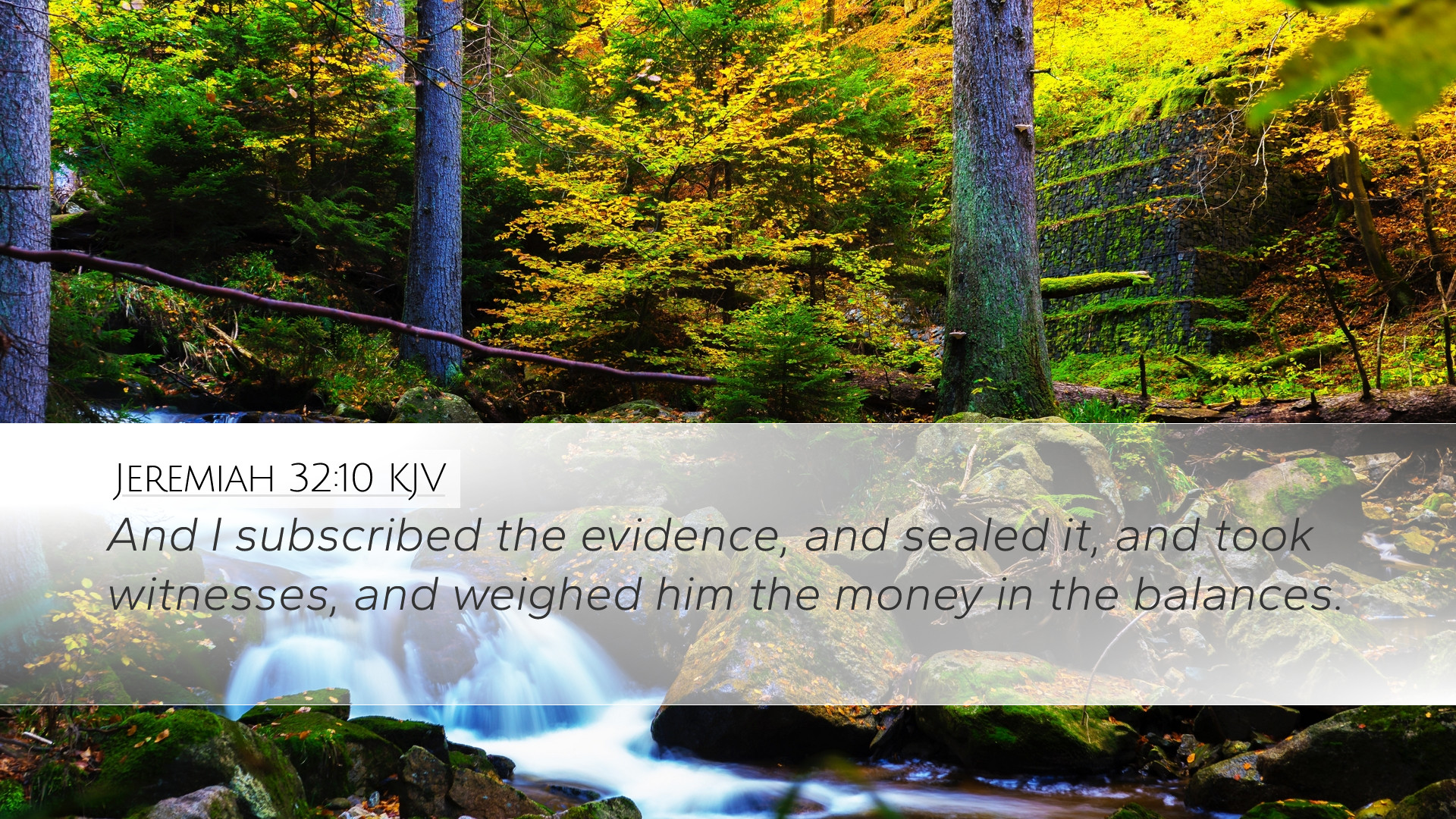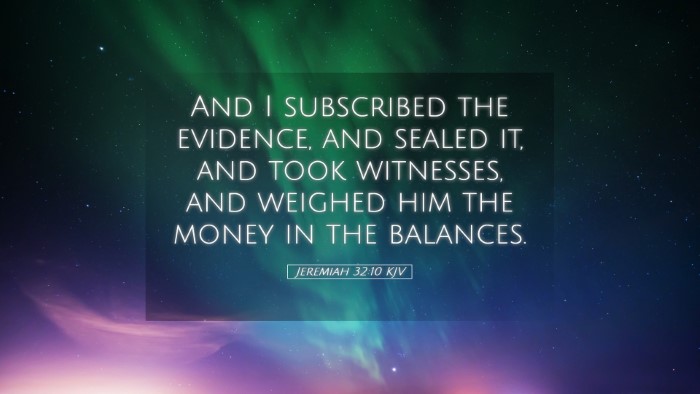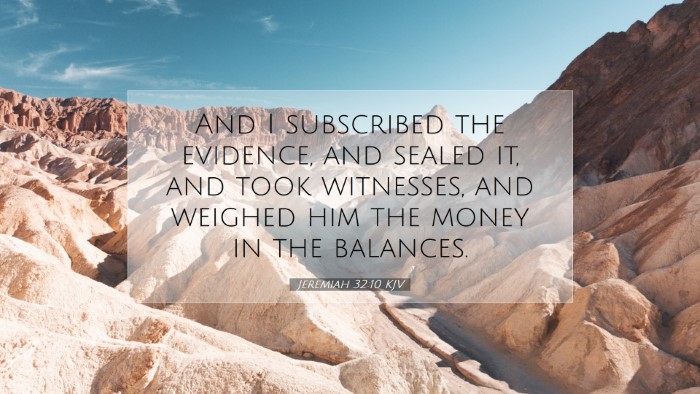Commentary on Jeremiah 32:10
Verse: "And I subscribed the deed, and sealed it, and took witnesses, and weighed him the money in the balances." (Jeremiah 32:10, KJV)
Contextual Background
The Book of Jeremiah is a rich tapestry of prophetic messages that reflect the tumultuous period leading up to and during the Babylonian exile. Chapter 32 represents a pivotal moment in Jeremiah's narrative, revealing profound theological implications amidst political turmoil. Understanding this verse requires recognizing the historical backdrop in which the property transaction serves not only as a personal but also as a prophetic act of faith.
Insight from Matthew Henry
Matthew Henry elaborates on the practical and prophetic significance of this act. He notes that Jeremiah, in the face of imminent disaster, chooses to purchase land, symbolizing hope and God's future restoration for His people. This act demonstrates faith in God's promise, as Henry points out, stating that, "Though the city shall be taken, yet it shall be inhabited again."
Henry emphasizes the seriousness of the transaction, highlighting the meticulous nature of how Jeremiah "subscribed the deed" and "sealed it." This precision underscores the legitimacy of the purchase and reflects the covenantal commitment God has with His people. In a time of uncertainty, this deed acts as a testament of faith.
Insights from Albert Barnes
Albert Barnes provides an additional layer by exploring the legal implications of the transaction. He points out that the act of "subscribing the deed" was a form of legal validation in ancient Israel, indicating that Jeremiah’s faith was not passive but active. By performing this legal act, Jeremiah solidified not only the ownership of the property but also his hope in God's promises. Barnes states, "This act is a declaration that the people of God shall return to their own land."
Furthermore, Barnes emphasizes the role of witnesses in the transaction, which serves to strengthen the covenantal nature of Jeremiah's actions—not merely a purchase but a testament of hope validated by the community. This understanding provides a broader view of faith that is communal and accountable.
Insights from Adam Clarke
Adam Clarke offers a detailed analysis of the financial considerations represented in this verse. He highlights the "weighed him the money in the balances," indicating a careful and just transaction. Clarke reflects on the importance of integrity in business dealings, a principle foundational to a just society. This aspect underlines the necessity of righteousness in the life of believers even in testing times.
Clarke also discusses the prophetic symbolism embedded in this property transaction, interpreting it as a sign of eventual restoration for Israel. He asserts, "This deed was a pledge of hope in times of despair," resonating with the overarching theme of redemption that permeates the prophetic literature. The mere act of purchasing land amidst impending doom exemplifies unwavering faith and prophetic foresight.
Theological Implications
The theological implications of Jeremiah 32:10 are profound. By purchasing the field, Jeremiah not only affirms God’s sovereignty and promise but also exemplifies a faith that actively engages with reality. This verse invites pastors, theologians, and students to reflect on the nature of faith amidst adversity.
- Faith in Action: The act of purchasing is a demonstration that true faith is not merely theoretical but must manifest in tangible ways, especially during trials.
- Hope and Restoration: The purchase serves as a prophetic sign of hope, affirming God's faithfulness in restoring His people even when circumstances seem dire.
- Covenantal Significance: This transaction underscores the enduring covenant between God and His people, emphasizing that God's promises transcend present circumstances.
Conclusion
Jeremiah 32:10 stands as a powerful narrative of faith, hope, and assurance in God's eternal promises. By combining insights from Matthew Henry, Albert Barnes, and Adam Clarke, this commentary underscores not only the historical and legal dimensions of the text but also its deep theological significance. As pastors, students, and scholars engage with this verse, they are reminded of the call to live out their faith courageously, even amidst profound challenges.
In reflecting upon the depths of Jeremiah’s act, readers are encouraged to embody a faith that proclaims hope in God’s promises, looking forward to the fullness of His restoration in their lives and communities.


